
Abigail Bokun
Baby Shark’s Big Show!
Nickelodeon
When Abigail Bokun was in the fifth grade, she told her teachers it was her dream to work at Pixar Animation Studios. She eventually earned a BFA in Animation from DePaul University and originally sought storyboard work but found it difficult to get her foot in the door. She feels fortunate to be in production, where she has grown her career from Production Assistant to Production Coordinator.
How would you describe your job?
I consider my job the glue that holds the different departments together. Production is not only interfacing with all the artists, writers, directors, and executive producers, but we are also expected to handle myriad day-to-day tasks that ensure everyone else is able to do their job efficiently. I am expected to attend any meetings that have to do with storyboards, director or lead check-ins, network reviews, and so much more. When I’m not helping run those, I [break] down episodes, track asset assignment, send files, and am at the ready for any issues that may come up.
What are the biggest challenges of your job?
With so many moving pieces, it can be overwhelming to make a choice about which task I should do when. There are times when I know I should be working on the lead sheet (logging every single asset that shows up in every single scene), but there’s also an animatic review at 4 p.m. and we still don’t have the animatic itself. Knowing what to prioritize when is a learned skill. Boundaries are also important. Because animation production unionizing is new, production desperately needs standardized job descriptions and protections to avoid job creep.
What are the best parts about being a Production Coordinator?
My love for animation is still so strong, and being in production allows me to watch an episode get made from start to finish. I still get that excited zing in my chest when watching a new animatic or seeing a cute design for the first time. Art is beautiful, and it is a privilege to be the one helping it get made.
Do you have any advice for aspiring Production Coordinators?
Whether production is a stepping stone in your path to a creative position, or a career you wish to pursue all the way up the ladder, I truly believe that production can foster good relationships between every person on the project. Be kind and learn about your peers’ schedules and their struggles. And tell them about your struggles and aspirations! The more we all learn about each other in this wonderful, stressful, beautiful world of animation, the more we can stand up for one another when times are tough.

Claire Anne Brand
Beavis and Butt-Head
Titmouse
Claire Anne Brand got her start in animation production in short-form web content with Hallmark Cards in their “e-card” department. She felt particularly drawn to the animation pipeline, which led to her first TV job with Titmouse. While there she’s worked as a Post-Production and Storyboard Coordinator, most recently on the Beavis and Butt-Head series and Beavis and Butt-Head Do the Universe movie.
How would you describe your job?
I would describe Production Coordinators as the connective tissue between departments. Coordinators facilitate handoffs between different stages of the production pipeline and ensure that everyone within their own department has the materials they need, while preparing assets for the next stage of animation. Coordinators also act as an intermediary between artists and their day-to-day tasks, and the larger timeline dictated by the producers.
What are the biggest challenges of your job?
I find one of the biggest challenges to be tracking various stages of the production process [all] at once. In television animation we’re usually working on multiple episodes at the same time, all of which are at different phases of completion. If you’re not tracking each episode carefully, it can be difficult to distinguish what each department needs and what stage they are moving to next. Another challenge is considering the multitude of deliverables each vendor or network needs from you. It’s important to create processes that consider multiple asks so that these assets can be delivered in a timely manner.
What are the best parts about being a Production Coordinator?
While it can be challenging to track multiple stages of production, it’s very rewarding when everything comes together, and you see an idea go from words on a page to a fully animated story. It’s great to be in close proximity to such talented artists—I feel like I get to sit in on private art showings whenever we have design reviews.
Do you have any advice for aspiring Production Coordinators?
Be intentional about getting to know members of the crew and the departments you work with. Everyone has a different style of working. While there’s usually a standard set of practices for how each stage of production should run, knowing how these can be adjusted to better fit your crew members will make the entire process flow more organically. And it’s a cliché phrase, but “expect the unexpected” could not apply better to working in production. Whether it be deadlines, deliverables, scripts, or designs, things in animation change all the time. As long as you’re flexible and ready to learn, you’ll do great!

Erika Smith
Grimsburg
Bento Box
Since working at Cartoon Network was one of Erika Smith’s dreams growing up, she calls her first job as a Production Assistant on Steven Universe Future “a pretty dreamy start to my career!” She went on to work on Bless the Harts and LEGO DREAMXzz, and she is now at Bento Box as a Production Coordinator on Grimsburg.
How would you describe your job?
It’s hard to describe what a “Production Coordinator” does because it can mean so many things. Production Coordinators can be Storyboard Coordinators, Design Coordinators, Post Coordinators, and a million other variations of the word “coordinator.” I’ve done a little bit of everything, but right now I’m a Record Coordinator. I manage the voice records on our show. That means scheduling actors, prepping materials, tracking dialogue, doing paperwork, and more.
What are the biggest challenges of your job?
Learning to prioritize is one of the most difficult parts of being a Production Coordinator. When you’re in the heat of production, there are a million things to do, and everything feels like the most important thing. You need to look at your tasks from a bird’s eye view [to] see what is actually the most important thing. Sometimes the most important thing for you will not be the most important thing for someone else, so you need to be mindful of your coworkers while also respecting your own needs.
What are the best parts about being a Production Coordinator?
There is a lot of joy in working in animation. You’re not working somewhere like a DMV where no one wants to be there. You are surrounded by creative people who love what they do. Everyone is trying to make the best show they possibly can. When you’re done, you get to share that joy with the world.
Do you have any advice for aspiring Production Coordinators?
This is a piece of advice that one of my Production Coordinators gave me when I was a Production Assistant: “Remember it’s just a cartoon.” Production coordinating is a high-stress, high-pressure job, and it’s very easy to feel like the world is ending if something doesn’t go as planned. The world will not end. Learn what’s in your control and [what’s] not, and try not to let others’ stress get to you. At the end of the day, we’re making cartoons, and that’s pretty cool!

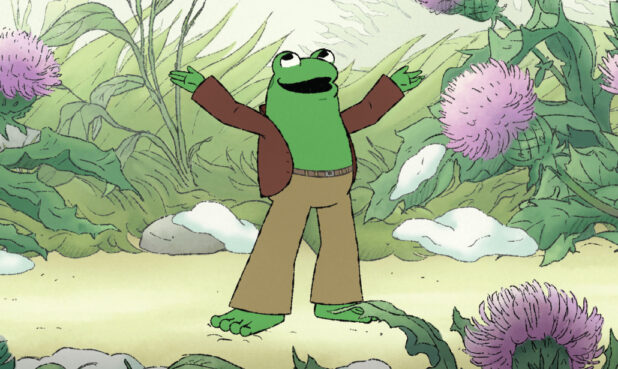
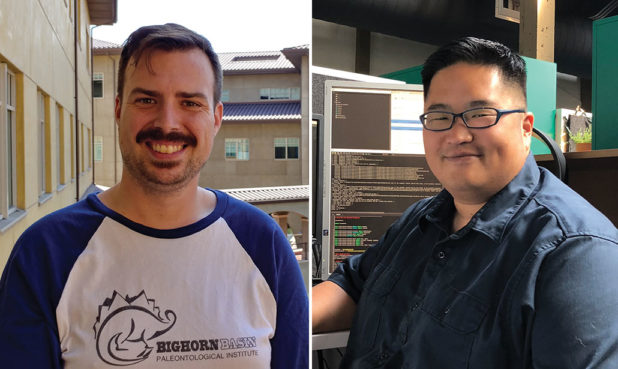

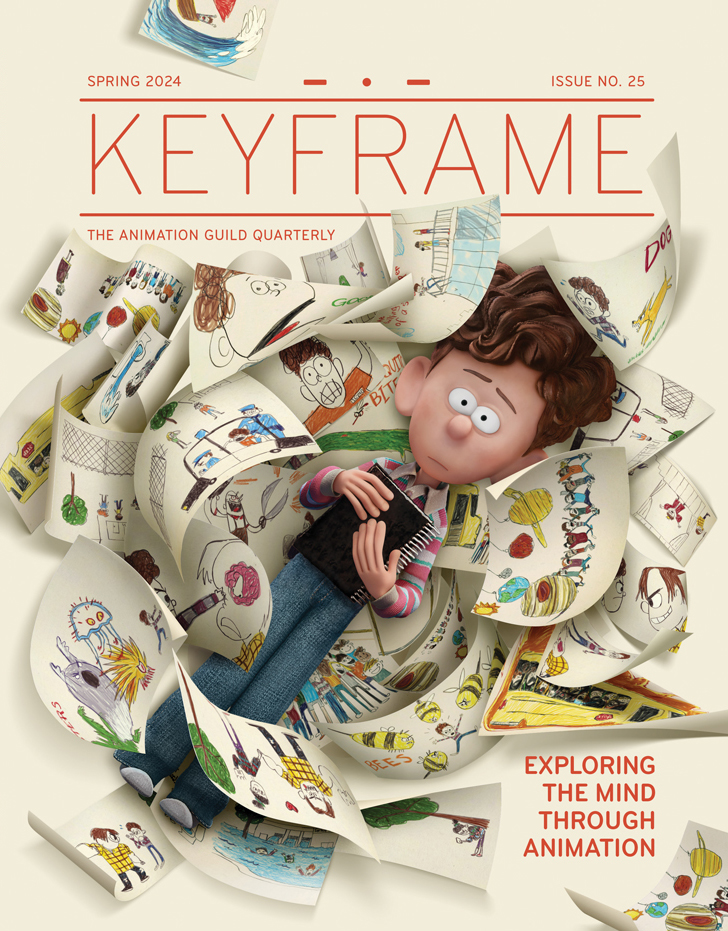
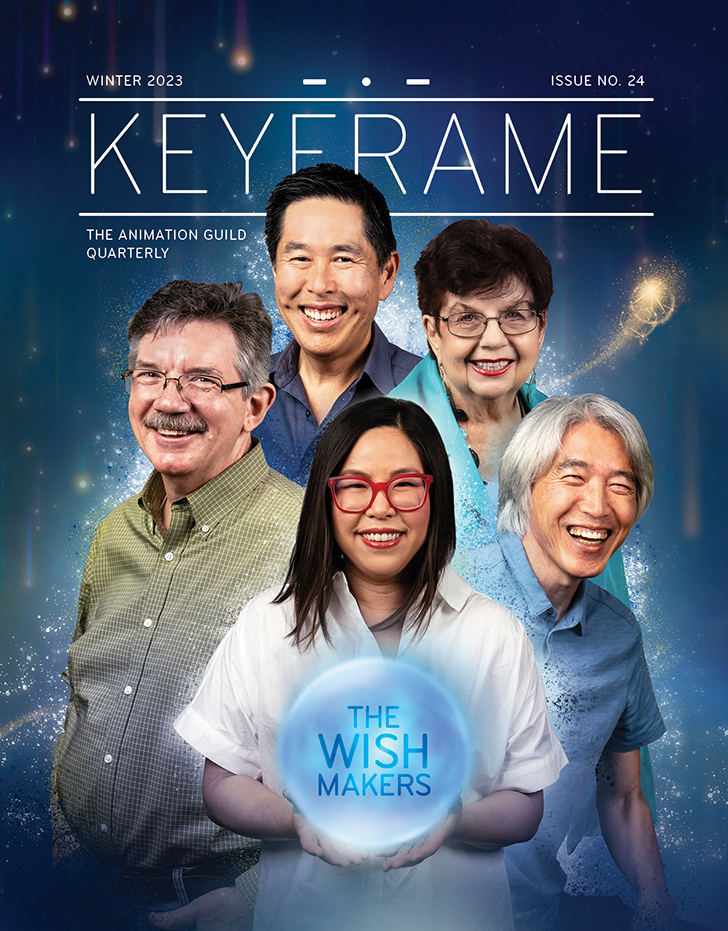
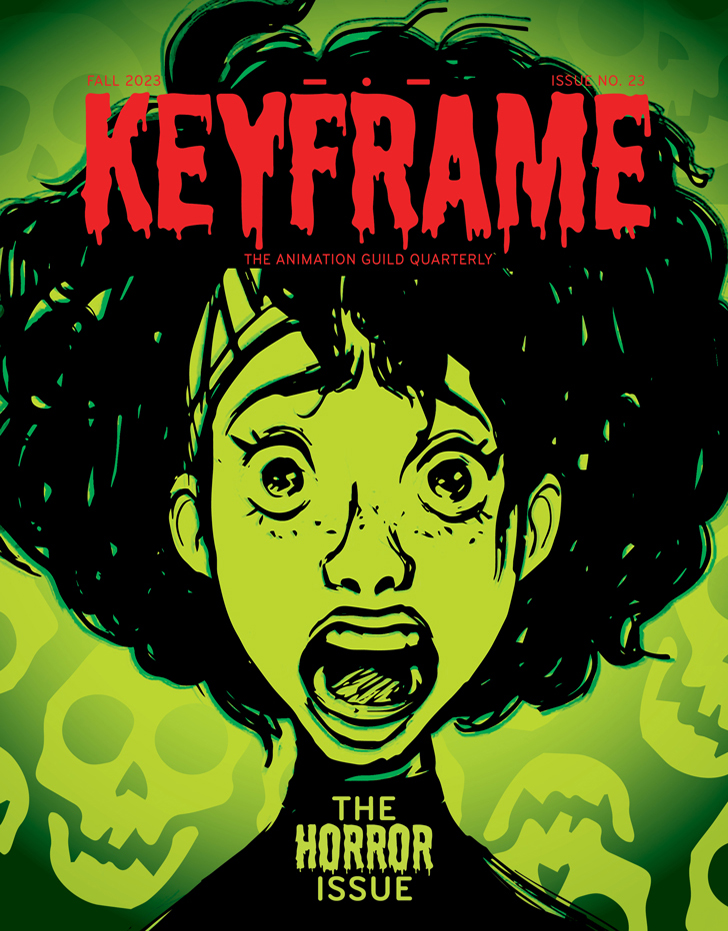
.png)